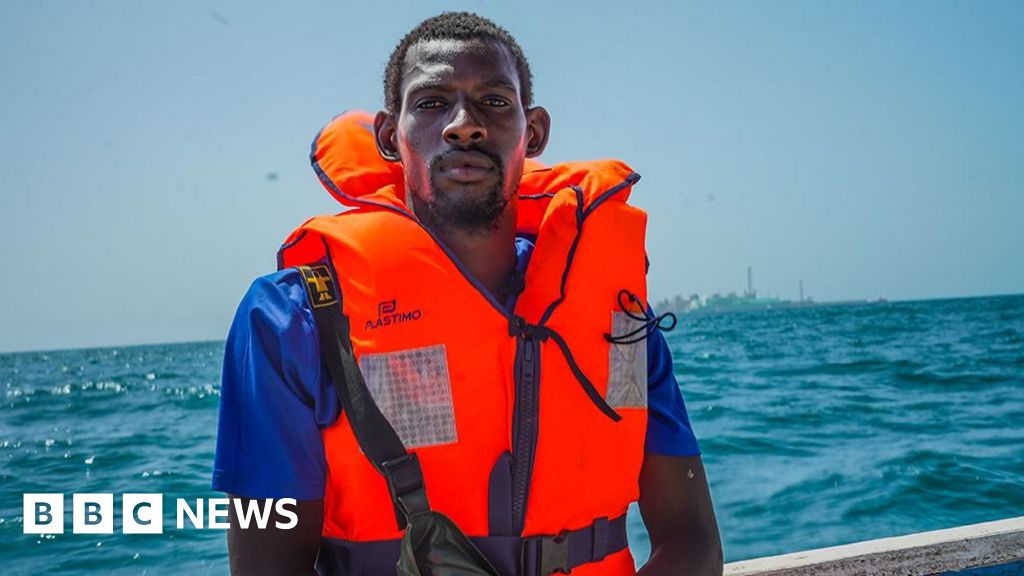'We only have the sea to live on' - Senegal's fishermen blame BP project for lack of fish

Senegal's Fishermen Blame BP Gas Project for Dwindling Catches
Fishermen in Saint-Louis, Senegal, are reporting drastically reduced catches and blaming a major offshore gas project operated by British multinational BP. They say restrictions imposed around the Greater Tortue Ahmeyim (GTA) gas platform, coupled with the project's broader environmental impact, are threatening their livelihoods and a centuries-old way of life.
"We Only Have the Sea to Live On"
Gora Fall, a 25-year-old fisherman, reflects the sentiments of many in Saint-Louis, a city where fishing is central to the economy. "Before, we worked to live, but now we just work to survive," he says. Fishermen report that daily earnings have plummeted, forcing some to abandon the profession or consider migrating to Europe in search of alternative opportunities.
The GTA project, a joint venture involving BP, Kosmos Energy, and the national oil companies of Senegal and Mauritania (Petrosen and SMH), aims to extract and liquefy natural gas from reserves straddling the maritime border between the two countries. The first phase of the project is expected to produce roughly 2.3 million tonnes of liquefied natural gas per year for over 20 years, potentially boosting Senegal's economy. However, local fishermen argue that this economic gain comes at a significant cost to their community.
Exclusion Zone and Artificial Reefs: A Source of Contention
Fishermen say they are prohibited from fishing within a 500-meter exclusion zone around the gas platform, which they claim is built on a natural reef abundant with fish. This restriction, they argue, has drastically reduced their fishing grounds and catch sizes. BP, however, maintains that safety zones around infrastructure are standard practice.
Adding to the frustration is the unfulfilled promise of artificial reefs meant to compensate for the loss of access to the natural reef. Nalla Diop, a spokesperson for the local fishermen's association, says that despite promises made in 2019, the reefs have yet to materialize. "When they came in 2019, they told people: 'We're going to build you eight artificial reefs' to at least replace our Diattara," he says. "However, six years on, nothing has been done."
BP states that feasibility studies and further evaluation revealed that only two of the 12 initially explored reef sites were "assessed as being feasible for a reef of a substantial size to be deployed without risk of submergence or scouring". One of those sites was within the Marine Protected Area (MPA) of Saint-Louis and therefore was not put forward. They expect the remaining reef complex to be completed by the end of 2025.
Expert View: Balancing Development and Livelihoods
Dr. Ibrahima Cisse, an environmental economist at the University of Dakar, emphasizes the need for a balanced approach. "While natural resource extraction can contribute to economic growth, it is crucial to consider the social and environmental impact on local communities," he says. "Governments and companies must engage in meaningful consultations with affected populations and implement measures to mitigate negative consequences, such as providing alternative livelihood opportunities and ensuring environmental protection." He further notes that the perceived lack of transparency and communication from BP has contributed to the growing distrust among the fishermen.
Historical Context: Fishing in Senegal's Economy
Fishing has long been a cornerstone of Senegal's economy and culture. According to the UN's Food and Agricultural Organisation (FAO), fishing accounts for nearly 60,000 direct jobs and more than half-a-million indirect jobs in Senegal, representing about 3% of the country's GDP. The majority of those working in the sector are small-scale, traditional fishermen and processors. The sector is particularly important for women, who play a significant role in processing and selling fish. Diamol Sène, a fish processor in Saint-Louis, says many women have lost their jobs due to the decline in fish stocks.
Concerns over Gas Leak and Environmental Impact
Adding to the fishermen's woes, a gas leak, described by BP as "gas bubbles", occurred in one of the wells in February 2025. Mamadou Ba, an ocean campaigner with Greenpeace Africa, warns that gas leaks could have "immeasurable effects" on the environment, potentially destroying marine fauna and flora, reefs, algae, and resources that fish rely on for food.
BP maintains that the environmental impact of the gas leak was assessed as "negligible" and that they acted swiftly to cap the well. However, the incident has further fueled concerns about the long-term environmental consequences of the gas project.
Government Response and Future Prospects
While the Senegalese government has hailed the GTA project as a means of strengthening the country's position on the global energy scene and generating vital foreign exchange, local fishermen feel their concerns are being ignored. They accuse the government of prioritizing the interests of BP over the well-being of their community.
The Senegalese government did not respond to the BBC's request for comment. The situation in Saint-Louis highlights the complex challenges of balancing economic development with the needs of local communities and the preservation of traditional livelihoods in Africa.
Originally sourced from: BBC News Africa
